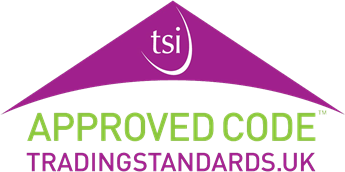
From the 30th of June 2021, freedom of movement between the European Union and the UK will be no more, and old EU residence documents will no longer be valid in the UK.
This will also effectively change the ways in which landlords and letting agents perform Right to Rent checks on tenants who are EU and European Economic Area (EEA) citizens. We go through the key points of what you, or your letting agent, will need to consider when performing Right to Rent checks:
The EU Settlement Scheme
The old documents that were issued under the EU free movement law will now be replaced with new documentation that is in line with the new UK immigration system. This means that anyone who comes from EU, EEA countries (which include non-EU countries like Iceland, Liechtenstein, and Norway), and Switzerland will need to apply to the EU Settlement Scheme to regularise their stay before the 30th of June 2021. The basic terms of the scheme are as follows:
- EU and EEA citizens who have been living in the UK continuously for 5 years or more before the 31st December 2020 (this means that they have been in the UK, the Channel Islands or the Isle of Man for at least 6 months in a 12 month period) can apply for ‘Settled Status’ where they can continue to live in the UK and enjoy the same rights and benefits as British citizens. They can also apply for citizenship if they’re eligible.
- EU and EEA citizens and their family members who arrived in the UK before the 31st of December 2020 but will not yet have been continuously residing here for five years by the time of their application, will be able to apply for ‘pre-settled status’. This will allow them to stay until they have reached the five-year threshold, where they will then have to apply for settled status.
- Close family members living overseas (this includes a spouse, civil partner, durable partner, dependent child or grandchild, and dependent parent or grandparent) will be able to come over and join their EU citizen sponsor so long as the relationship existed prior to the 31st of December 2020.
The deadline for applications to apply for the EU Settlement Scheme is 30th June 2021 – applicants must apply as soon as possible before this date or they will risk living in the country unlawfully.
How can applicants prove settlement status?
Once an application is approved, the applicant will be emailed a letter that will confirm their ‘settled’ or ‘pre-settled’ status – please note that this in itself cannot be used as a document to prove their status. They will then be given access to an online service where they will have access to their share code to prove their immigration status to others, can update their personal details and check what rights they have in the UK. Before letting to a tenant, you should obtain and check their share code. If, for whatever reason, you cannot get access to the share code then you will be able to use the traditional method and clarify their right to rent with the Landlord Checking Service. However, you should always encourage the use of the share code as it’s a lot more straightforward for everyone involved. Tenants will be able to access their share code online and on the UK Immigration mobile app, which is free to download.
Your responsibility as a landlord
As landlords and letting agents, it is our responsibility to ensure that any tenants we let to have a legal right to rent a property in the UK. Not only will you need to check the settlement status and share code of potential tenants, but you will also have to check the status of your existing tenants once the deadline date passes. While you cannot force tenants to apply for their settlement status, it might be a good idea to gently remind them to put their application through if they haven’t done so already, if they wish to continue living in the UK. If your tenant has a ‘pre-settled’ status, you will need to check that the tenants have applied for their settled status when they are due to apply for it. You – or your letting agent – should have reminders set up to check on tenants once the five-year pre-settled period is over. If the tenant has failed to apply for the settled status in time, or they have had their application rejected, then it is your responsibility to alert the Home Office. If they have settled status, you will only need to check their documents after the 30th of June – after that, they will be allowed to reside in the UK indefinitely (unless they leave the UK for a period of 5 consecutive years or commit a criminal offence).
Retrospective Right to Rent checks
Something else to remember when it comes to Right to Rent checks is that the COVID-19 adjusted virtual checks will come to an end soon. In response to the pandemic last year, the government introduced temporary measures for the right to rent checks to be carried out virtually, as opposed to the traditional face-to-face method. This will now come to an end on the 20th of June and from the 21st of June onwards, you will have to revert to face-to-face checks. It was initially announced that retrospective in-person checks would have to be carried out for all those that had virtual COVID-19 adjusted checks between the 30th of March and the 20th of June (inclusive), however, the government have since announced that these will no longer be required. On the gov.uk website, it is stated that ‘You will maintain a defence against a civil penalty if the check you have undertaken during this period was done in the prescribed manner or as set out in the COVID-19 adjusted checks guidance.’. If you have a tenant apply for a property of yours after the 21st of June, you MUST carry out in-person Right to Rent checks and you will have to check physical copies of the documents.
If you have any further questions regarding the new EU Settlement Scheme and changes to Right to Rent, do not hesitate to get in touch with your local branch.




